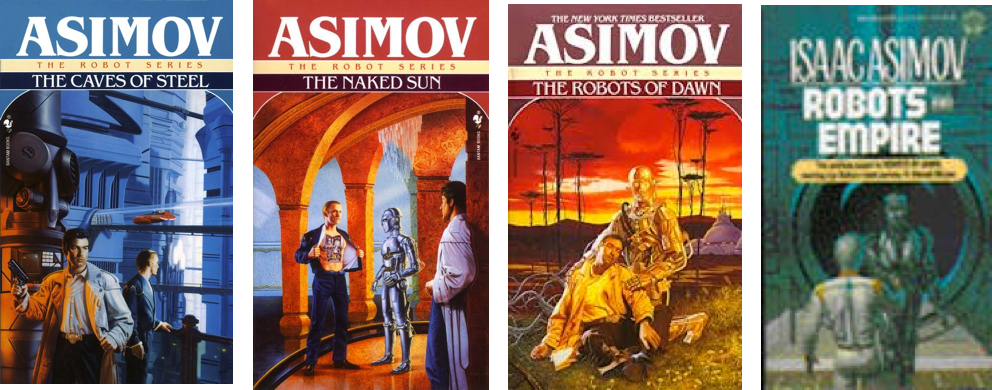How to fall in love with a robot
Knowing AI's strengths and weaknesses give us an idea of what it can do for us.


In 1942, Isaac Asimov introduced the "Three Laws of Robotics":
- A robot may not injure a human being or, through inaction, allow a human being to come to harm.
- A robot must obey orders given it by human beings except where such orders would conflict with the First Law.
- A robot must protect its own existence as long as such protection does not conflict with the First or Second Law.

In recent years, rapid advances of AI has brought us closer to Asimov’s robots than ever before; we have a very different idea of what robots can look like and how they will interact with us -- think factory automation, autonomous cars, drones, Siri, Alexa. But can it be considered full AI if there is a set of Asimov-like laws to restrain its advancement and consciousness? Similar questions have been artfully explored in many Hollywood films. It makes for an interesting topic at dinner parties but the idea is beyond far-fetched. AI’s potential is vast but there are still too many things AI can’t do.

What we have today is tractable "narrow AI"; knowing its strengths and weaknesses give us a better idea of what it can do for us:
- No algorithm has come close to matching human’s flexibility to navigate between domains and dynamic situations. AI would only be able to do one thing, but do it very fast and very well.
- AI cannot experience emotions as we know them, but is great at recognizing patterns of emotions which allows it to “understand” and facilitate the tasks humans are trying to do.

There are many startups selling AI with lofty ambitions but struggling to take flight. It boils down to overpromising and failing to solve users’ immediate needs today. So what should you focus on when productizing AI to get people to use your product when everyone’s selling the same thing?
- Domain specific - AI shines in a well-defined domain. Pick a niche and master the domain knowledge. Don’t bite off more than you can chew.
- Sentiment-aware - Robots don’t need to act like humans to get things done. Sentiments are your eyes; start by “understanding” users’ sentiments then follow up with actions that align closest with their sentiments to solve their problems. Who doesn’t love a robot that gets things done and makes problems go away?

AI shouldn’t be feared. There is no stopping AI’s evolution and it is the vehicle for improving human life across every spectrum. By no stretch of the imagination could we think of Artificial General Intelligence (AGI) achievable in the next three decades. It is inevitable we will fall in love with robots and it will redefine romance. For now, our relationship with robots is much like that of a super pet and its master. And for your AI product to travel far and fast, I recommend traveling light.
Learn More About Allganize's Technology
